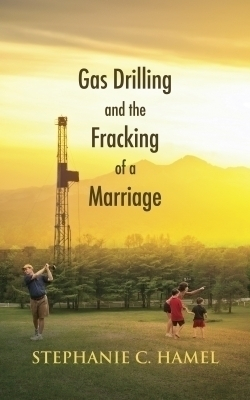
Gas Drilling and the Fracking of a Marriage
Holding strong beliefs about the environmental impact of fossil fuels is easy when a gas company doesn’t knock on the door with a lucrative drilling contract for your land.
That’s the lesson at the heart of Stephanie Hamel’s first book, an exploration of what happened when she and her husband, Tom, were offered $2,500 per acre to lease their natural gas rights at farm property they owned in Pennsylvania. Although Tom was ready to sign up, Hamel balked.
Her work in environmental health sciences and lifelong passion for the beauty of the farmland—where she’d spent summers as a child—inclined her toward turning down the offer. Then she learned about Pennsylvania’s Law of Capture, which allows energy companies to collect gas from a property via a neighbor’s well, and she found herself faced with a larger dilemma.
“So much for saving the environment, I thought,” she writes. “Will I still act on principle? What on earth happens when acting on principle has no positive effect? Is an empty principle worth the fight?”
In the fascinating exploration that follows, Hamel is unflinching in presenting her own conflicted feelings and the difficulties that crop up from disagreeing with her husband. Much like gas companies do drilling and fracturing (“fracking”) of shale below the earth’s surface, the contract and subsequent discussion between the Hamels taps into each person’s belief system and causes some toxic energy to be released.
She writes, “[H]aving dug my heels into my position, I was watching the companionship of our marriage erode. A coolness had settled between us, a thin icy barrier that chilled our friendship and couldn’t be ignored.”
Although Hamel focuses largely on her own internal exploration of her values and self-admitted “inconsistent beliefs,” the conflict with Tom proves fascinating. The glimpse into what happens when couples disagree at a fundamental level—and what they do to try to reconcile their principles with each other—is valuable for anyone working through conflict with a loved one, or even when faced with one’s own conflicting values.
Reviewed by
Elizabeth Millard
Disclosure: This article is not an endorsement, but a review. The publisher of this book provided free copies of the book and paid a small fee to have their book reviewed by a professional reviewer. Foreword Reviews and Clarion Reviews make no guarantee that the publisher will receive a positive review. Foreword Magazine, Inc. is disclosing this in accordance with the Federal Trade Commission’s 16 CFR, Part 255.
